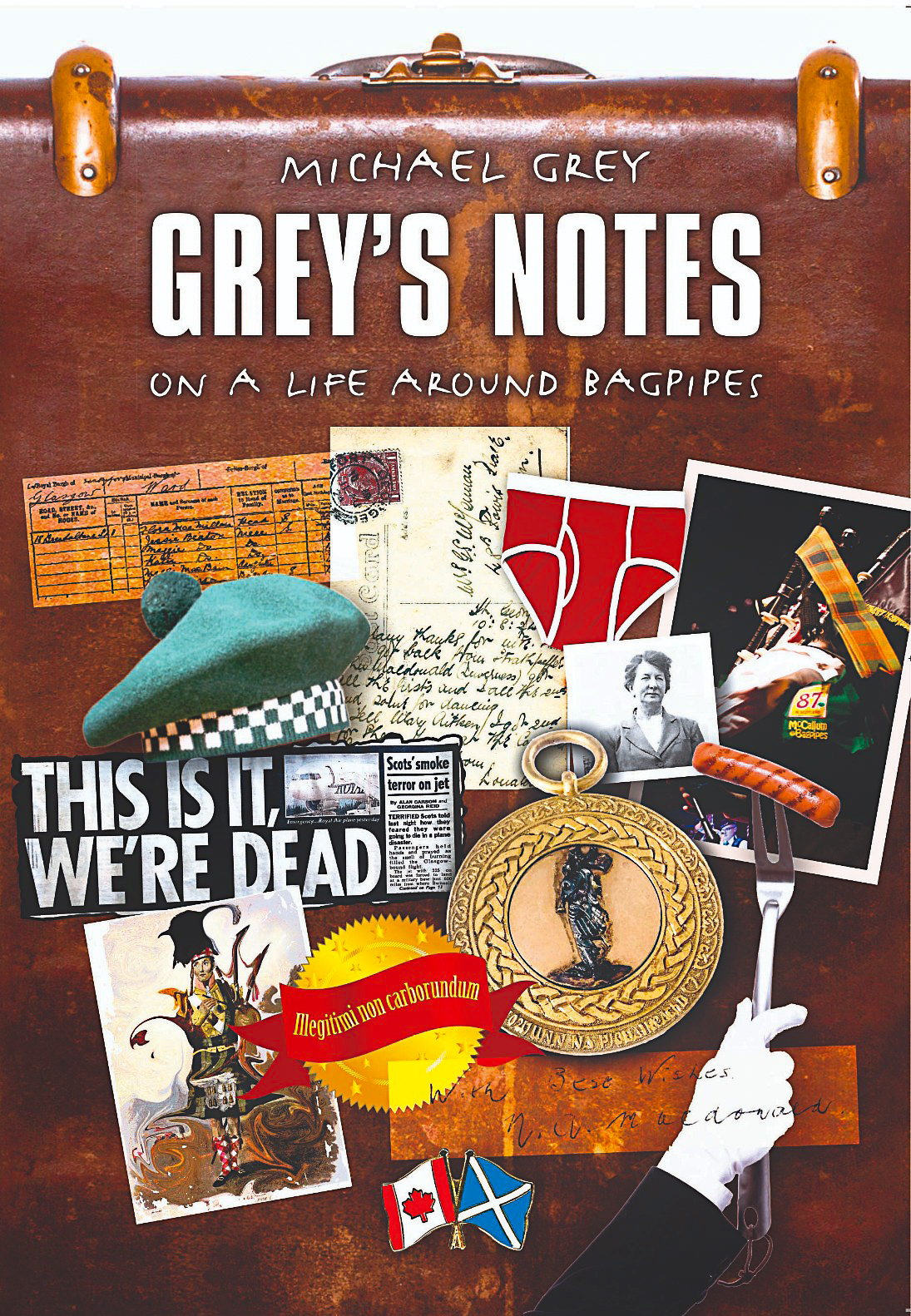Watching Paint Dry & Pipe Band MSRs
November 9, 2008 on 8:14 pm by Michael Grey | In Music, Pipe Bands, Whinges | 6 CommentsThis weekend I happened across a quote courtesy of the French philosopher, Francois Marie Arouet (aka Voltaire). He wrote, “the best way to be boring is to leave nothing outâ€. Ain’t it the truth. Think of the masses of news coverage of the politician who misspeaks, or the chatter after a concert when a singer forgets lyrics or an actor forgets lines – the kind of stuff that morphs to memory, leaves a strong, nearly indelible impression. TV networks make buckets of cash (I guess) producing TV shows of outtakes and “bloopers”. People love it. What makes bull fighting timelessly popular with the Spanish public? The artistry and athleticism of the matador, without doubt. I suspect, though, it’s more the possibility of a good old-fashioned gouging that tells the true tale, a matadorian misstep of the lethal kind keeps the crowds coming, and holds the potential for biggest impression and, dare I say it, most exciting entertainment.
Competitive piping, especially the pipe band kind, is cut from the same cloth.
Take the competitive pipe band march, strathspey and reel (Henny Youngman would add, “please”, I’m sure). After a contest, what’s most heard in the beer tent, in the klatches that gather in the pubs? “Did you see that? ____ didn’t get her pipes up and they still got a prize!”, or “three blooters and still in the list”. It’s not all that often that we hear (or say) words like, “their phrasing was impeccable, not an error to be heard and their sound, without fault”, “scintillating perfection”. Admittedly, that’s due in part because the odds of that kind of perfection by a group of people numbering upwards of 30+Â are pretty high. But, even then, those words are not part of the average pipebandperson’s DNA. It’s the imperfections that make the pipe band world go around.
When what’s not right is the most talked about and memorable part of a pipe band event, I suggest to you that we have a problem. Our competitive “set” events draw on a repertoire that is based on a convention and a de facto repertoire of something like 10 marches, 10 strathspeys and 10 reels. For instance, who needs (or wants) to hear, “The Clan MacRae Society” march 10 times, like those listeners to the grade one events at the World Pipe Band Championships this past August? The judges must’ve been poking their eyes with their mostly sharp pencils to keep from dozing off.
I can tell you, as a listener, I find very little entertainment in the pipe band MSR contest.
Unlike a good solo MSR event, where there is a high possibility of hearing engaging stylistic colouring, tasty nuances and interesting interpretative risk-taking, the pipe band MSR is boring. Really.  With the natural parameters of percussion and insanely accurate technical precision the peformance of a pipe band MSR is incapable of matching the nuances of the solo set. Â
The MSR event became the pipe band norm around about 1935. I respect the 70+ year history of the event – but I wish it would go away. There are good traditions and bad traditions. The MSR event falls in the latter category. Â
M.
6 Comments
Sorry, the comment form is closed at this time.
Dunaber is using WordPress customized and designed by Yoann Le Goff from A Eneb Productions.
 Entries and comments
feeds.
Valid XHTML and CSS.
Entries and comments
feeds.
Valid XHTML and CSS.



I sympathize, but I wonder if the problem is not the band MSR event per se, but rather the fact that bands play ONLY “The Classics”, the same few tired and true tunes of the de facto repertoire you mentioned, and don’t take chances with new, original, serious contemporary compositions – of which there is no scarcity (at least of marches and ‘speys). Thanks! ~ Chris.
Comment by ChrisZ — November 9, 2008 #
I agree with the comments that the band MSR is staid but it’s can’t go away. Too many players today can’t play a good MSR and even less a piobaireachd so to scrap them would just lower the mean level of competency.
Perhaps something like the solo events should be adopted for the majors: Bands in G1 submit 4 marches, strathspeys and reels when they book the event and have the organizers pick their set. This would eliminate a lot of repetition. It would also make the bands have to work harder and learn new sets each year, keeping players interested. It would also sort out the wheat from the chaff. Any good band can get a MSR to sound great if they’ve been playing it for six years but if you book in, say, January and have only 8 months to get a new MSR up to scratch that would be interesting to see which bands stay where they are today.
Comment by IainMcLean — November 10, 2008 #
o Chris – you’re right: hearing a greater vareity of tunes on the day would help. But were still stuck with the same 3 pace roll to E intro and each band aiming to play only 3 tempi.
o Iain – I don’t view the pipe band MSR as the gatekeeper of the competitive MSR tradition – solo pipers do that. At the same time, I think there are many great challenging non-competition MSR ways for pipers and drummers to learn their chops. You’re points are interesting re: competition format. It’s true, too, lots of bands hang on to favoured MSRs. Off the top I can think of one band that has played Charlie’s Welcome for well over 20 years!
M.
Comment by mike — November 10, 2008 #
I agree. Unfortunately, the majority of pipe band competitors don’t seem to. They like the MSR, and it will be around for a while yet. I’ve always contended that the MSR is a mini-medley. That’s how it started, but it was leap-frogged by the 5-7 medley 40 years ago, which itself is now stale as the hot dog buns at Glasgow Green.
I was amazed at the number of “Clan MacRae”s there were at the World’s. I had never played the tune myself until this year, but quickly realized why so many bands (and so few soloists) use it. That said, it’s a terrific composition when played well, but brutal when not. I really enjoyed playing it in the MSR twice this year, and, judging from the positive feedback (even though people usually tell you what you want to hear) so did listeners.
Comment by aberthoff — November 10, 2008 #
I have to admit that I am one of those pipe band dopes who like the MSR. I think that MSRs are a great musical and technical challenge for all, and I think one of the reasons they have grown stale is that bands are not reaching beyond the obvious tune choices. A couple of years ago I was really happy to learn “Angus Campbell’s Farewell to Stirling” as an MSR tune, and it reflected a slightly different approach. I’d love to see some “set lists” for this event, in the same way the RSPBA does for QMM contests, or the PS does for the Gold Medal. Or, maybe the approach would be to simply name the 30 tunes that can’t be played? Wouldn’t it be great to hear some new compositions in that contest! At the same time, by reaching out to those tunes, we’d also eradicate the use of all those [great] Alex Duthart, Jim Kilpatrick, Reid Maxwell [etc.] scores that get passed around, re-interpreted, watered down, re-sticked, etc. Fresh tunes, new drum compositions, and adjudicators who don’t have 20-40 years of expectations for every tune. That might be a fresh enough approach to revive the MSR.
Comment by iainmacd — November 11, 2008 #
o Andrew – agree that the world is not ready.
o Iain – I always suspected you were a PBD and now you confirm my suspicion. What you suggest sounds interesting (eek, more control of what’s performed is suggested…!). I don’t think that would fix the MSR’s low entertainment factor. To a non-piper or drummer “Flett from Flotta” and “Links of Forth” sound the same…forget adding fresh 2/4 march repertoire! It might be a little better for the hardcore listener to hear fresh repertoire, but the crowds still won’t come close to buying scalped tickets to a pipe band MSR event. HAR! Can you imagine! M.
Comment by mike — November 11, 2008 #